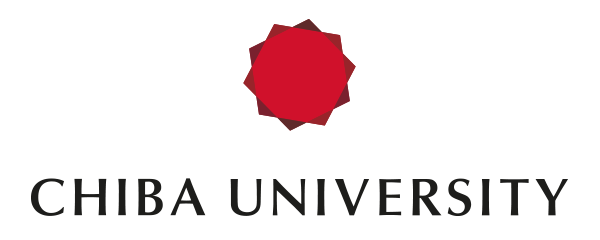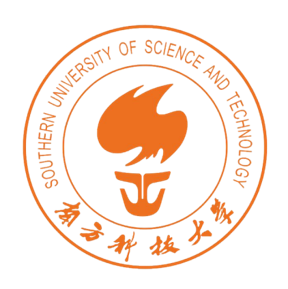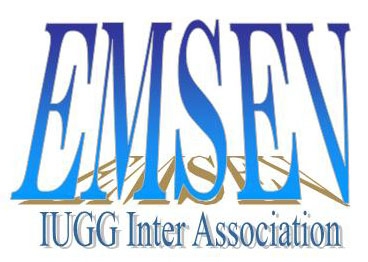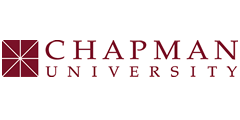Last update : June 15, 2023
<Circular in PDF format
 >
>
What's New
Scope of the workshop
Professor Seiya Uyeda, who devoted himself to earthquake prediction, passed away in January 2023. We want to hold this workshop to honor Professor Uyeda's contribution to the field of earthquake prediction and to carry on Professor Uyeda's passion and spirit for short-term prediction to realize a world that reduces earthquake disasters.
The latest M7.8 of Feb 6, 2023, devastated earthquake in Turkey and several most recent catastrophic earthquakes (1999 Chichi, Taiwan, 2004 Sumatra, 2008 Sichuan, China, 2010 Haiti, 2011 Tohoku, Japan, 2015 Nepal, 2016 Kumamoto, and 2018 Sulawesi, Indonesia) claimed thousands of lives and caused extensive economic losses. The year 2023 is also the 15th year of remembering the 2008 Sichuan Earthquake and the 5th year of remembering the 2018 Sulawesi Earthquake disasters in China and Indonesia. Still, the international science community is looking for solutions in the early detection of major seismic events to minimize the loss of human life. Multiple detections of earthquake precursory signals have been reported before, and the new observations from space and ground have provided new evidence about the existence of pre-earthquake processes. The latest studies revealed the pre-earthquake signals' statistical significance, repeatability, universality, and effectiveness for the forecast. In this workshop, while discussing pre-earthquake signals' applicability to short-term earthquake forecasting, we contemplate exploring different physical mechanisms for generating and propagating pre-earthquake signals. Discussions on earthquake forecast testing, multi-parameter observation, and international joint research are also included.
Topics
-
General discussion on the earthquake preparation process and the physics of pre-earthquake signals
-
Statistical analyses of earthquake precursors
-
Theory, modeling, laboratory experiments, computational simulation for generation and propagation of pre-earthquake signals and their connection with the seismic cycle
-
Multi-parameter observations, detection, and validation of pre-earthquake signals
-
Integration of multi-parameter observation and related projects and results
-
Cross-disciplinary studies, practical, and technical approaches for a better understanding of earthquake preparation processes and their connection with seismicity
-
Presentations on the latest developments in earthquake predictability and prospective testing associated with major earthquakes are welcomed.
-
Other related topics on earthquake preparation processes
Venue
The workshop will be held at Chiba University (Nishi-Chiba Campus), Chiba, Japan on May 24 - 25, 2023.
Access information:
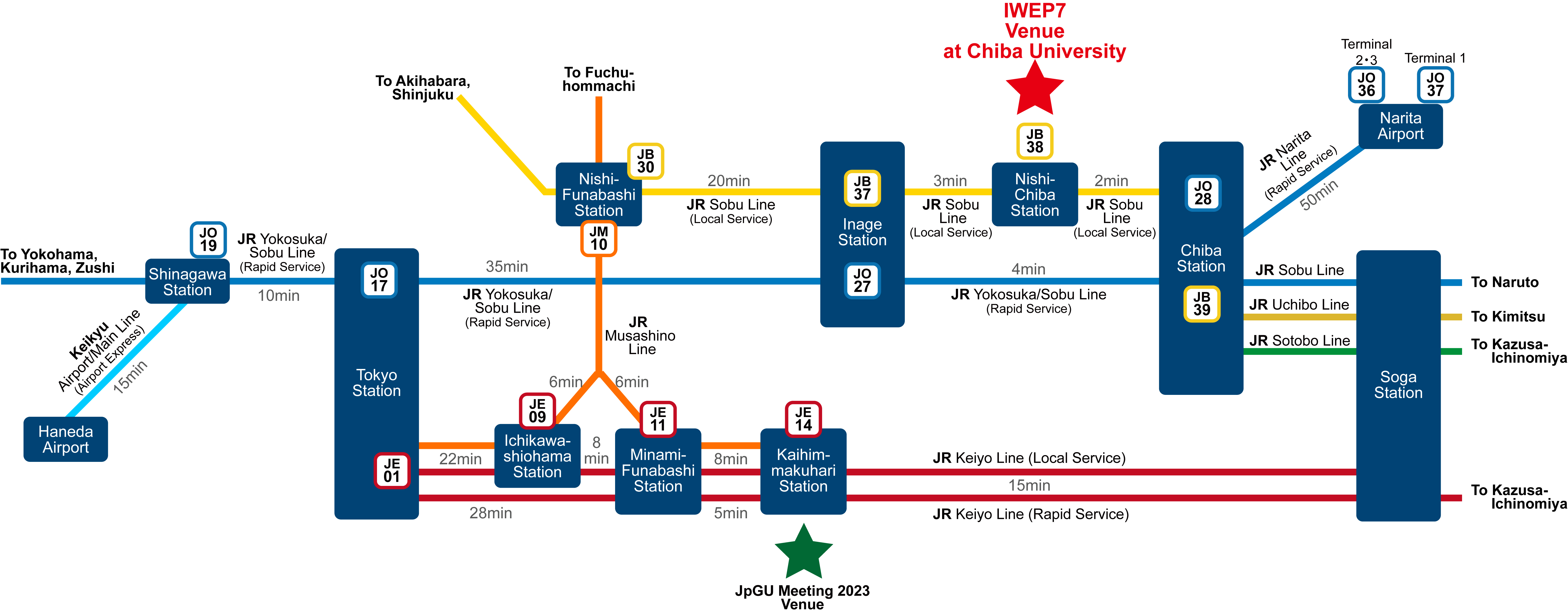
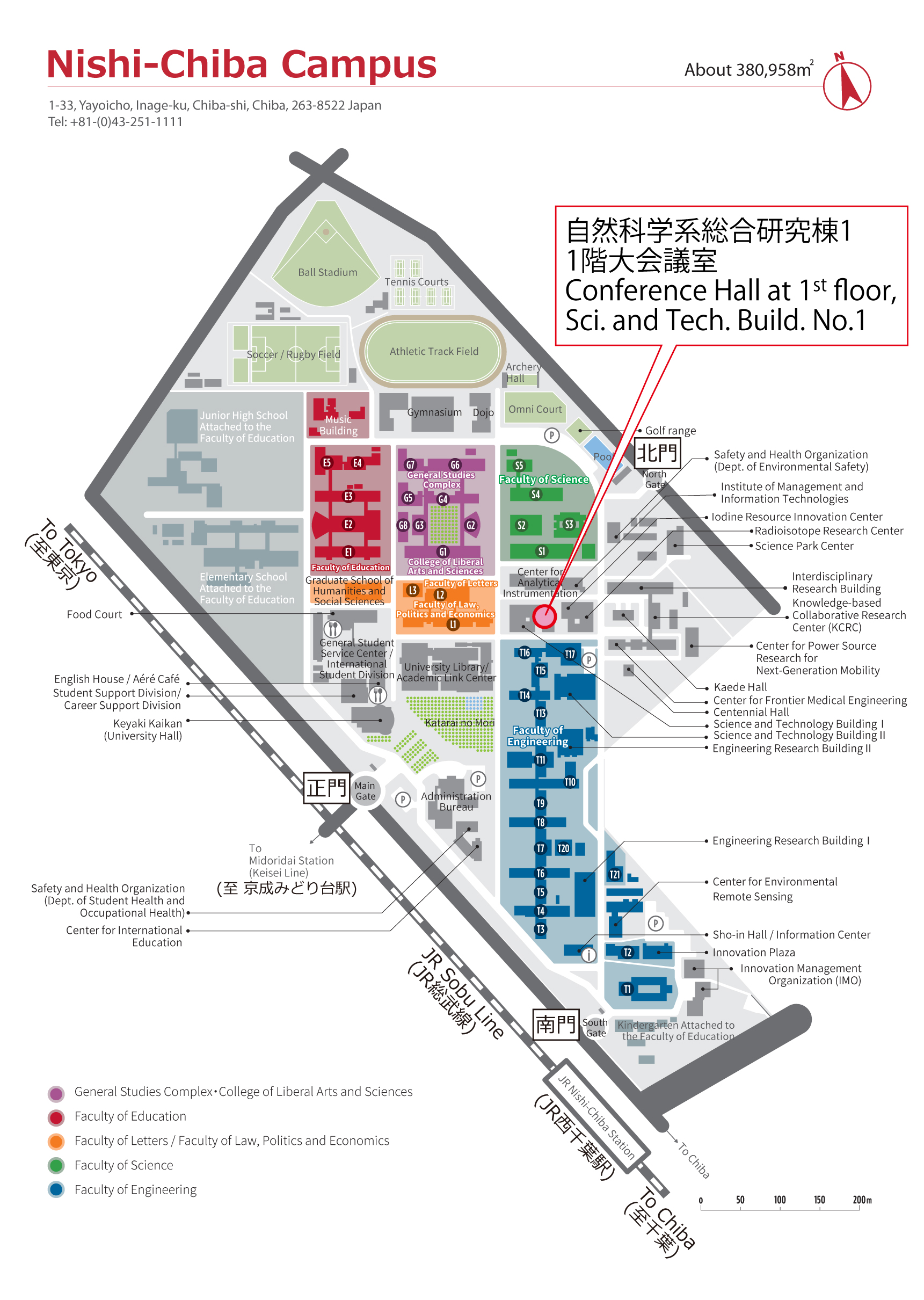
https://www.chiba-u.ac.jp/e/about/location/index.html
https://www.chiba-u.ac.jp/e/about/location/access_to_nishi-chiba_campus.html
Presentation information
-
Program & Abstracts
-
Oral presentation: 30 or 20 minutes including 5 minutes question-and-answer time.
-
Poster presentation: Poster board size: 90(W) x 180(H) cm
All the posters will be shown in the conference room during May 24 and 25.
Welcome Party
Welcome party will be held on May 24, 2023 at "Hotel PortPlaza Chiba", near Chibaminato station (10 minutes by car from University).
The price will be 8,000 JPY per person (3,000 JPY for a student).
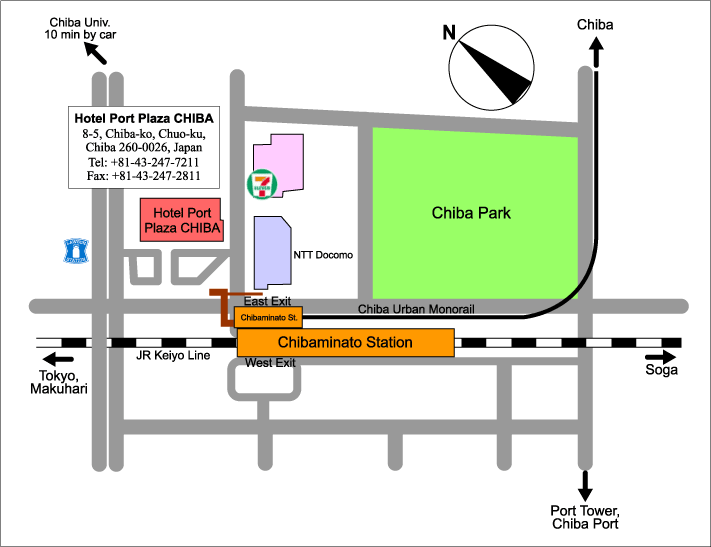
Participant & Registration
Participants of the workshop will be scientists and students interested in this field. Participants from the industry are very welcome. All participants are subjected to register in advance through e-mail as written in the following. Invited talks and contributed papers (oral and poster talks) will be presented in the workshop.
This workshop is free of charge.
Sponsor
Co-Sponsor
Supported by
Organizing Committee
- Chairperson
- Dr. Katsumi Hattori (Chiba University, Japan)
- Secretary
- Dr. Rui Song (Chiba University, Japan)
- Dr. Peng Han (Southern University of Science and Technology, China)
Program Committee
- Chairperson
- Dr. Jann-Yenq Liu (National Central University, Taiwan)
- Dr. Dimitar Ouzounov (Chapman University, US)
- Dr. Qinghua Huang (Peking University, China)
- Dr. Xuhui Shen (National Space Science Center, CAS, China)
- Dr. Toshiyasu Nagao (Tokai University, Japan)
|




